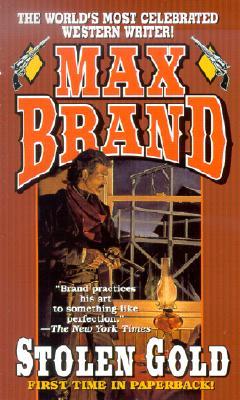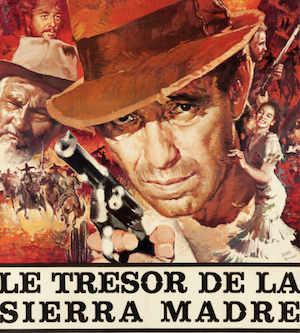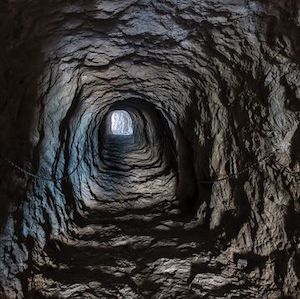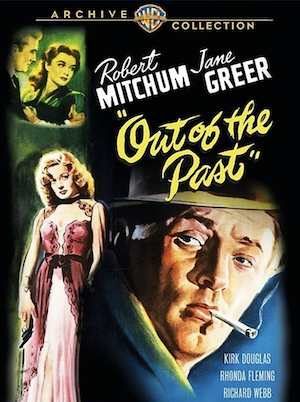How safe is your physical Gold?
 One of my best friends recently discovered, to his shock and dismay, that five one-ounce gold coins had been stolen from his home. I feel especially bad because I had encouraged him to buy some physical metal, giving him some tips and pointing him to the better dealers.
One of my best friends recently discovered, to his shock and dismay, that five one-ounce gold coins had been stolen from his home. I feel especially bad because I had encouraged him to buy some physical metal, giving him some tips and pointing him to the better dealers.
What’s especially disconcerting about the theft is that my friend had the coins stored in a safe, hidden from view, securely locked, with the key hidden. He thought his gold was safe, a reasonable assumption given the precautions he’d taken.
But all those measures weren’t enough. Based on what he knows, he strongly suspects it was a relative, partly because of this person’s background and partly because they were one of few familiar enough with the house to know where the key might be. The police unfortunately don’t have enough evidence to make an arrest – fingerprints, for one, couldn’t be successfully lifted from the safe.
My friend was in shock for several days. While it didn’t represent all the gold he owned, it’s not insignificant; with gold at $1,400/ounce, that’s seven grand the thief made off with. He’s further consternated by how it went down; the robber only took part of his stash, evidently to make it look like his gold hadn’t been disturbed. The key had also been put back in its place, and for this reason he can’t pinpoint a specific time period the coins were stolen.
The cost to him has been more than monetary; he loved his bullion coins and had collected at least one from almost every country that produces them. He told me he occasionally took them out of the safe because they were, in his words, “beautiful… and I just loved the weight of them in my hand.” His stash was starting to build up to a point where he had enough “savings” for almost any emergency. The pain deepened further when he learned that thanks to current IRS rules, he can’t even write off the loss. (He’s forgoing a homeowner’s claim, given the industry’s reputation for dropping customers for making “small” claims.)
Needless to say, my friend is no longer storing his gold (and silver) in that safe. He’s the kind that would normally shy away from using a bank safe deposit box, but not anymore. Even with that, though, he knew this method wasn’t perfect and so explored all his options. He’s decided to follow the suggestion I outline at the end.
After the dust settled, he told me that yes, he felt violated; yes, he’s still angry; and yes, it’s made him suspicious of others around him, a feeling he hates. “But what I suddenly realized,” he said, “was how valuable gold is becoming again. It’s not a ‘barbarous relic’ anymore… it’s not a pretty coin or a hunk of metal or a commodity or even an investment. It really is money, and it’s scary to think how dicey things might get when everyone sees gold as money again.”
My friend is not poor; there were other valuables the thief could’ve snatched. He took the gold.
So what about you? How safe is your safe? Are your clever hiding spots clever enough?
Here’s a quick checklist of the three most common places to store your gold. My friend overlooked one of the basic rules of home storage, so I hope you’ll review where and how you store your precious metals so that you can avoid the same pain and loss he experienced…
Safe deposit box
The easiest and simplest way to store gold is in a safe deposit box at your local bank. If you go this route, use a local bank. You want to be able to get to your gold in an emergency, which is one of the reasons you own it in the first place. So don’t keep it in a different state or a distant city. Keep it close.
However, as my friend acknowledges, a safe deposit box isn’t perfect. First, your access is restricted; you can only get to the gold during regular banking hours. Second, safe deposit boxes are not insured against robbery. And last, a bank box compromises your privacy. It provides a generous clue for the government, in case it ever decides to repeat FDR’s 1933 confiscation of gold.
A related option would be to use a depository or private vault. They’re outside of the financial system, though they tend to be on the expensive side. And they’re not plentiful, so you may not live near one.
Bury it
This is where the term “midnight gardening” comes from; people bury their gold at night so others won’t notice the digging. The alternative is to find a separate reason for the excavation, such as fixing a pipe or removing a stump, and work in the daylight.
Either way, before those of you who are used to clean fingernails pass on this method, consider its advantages: it won’t be damaged in a fire, and a burglar would need to know where to dig. A lot can happen in the world that won’t disturb buried gold.
A few practicalities, if you decide to go the shovel route. First, use the right container, something airtight and waterproof. This is especially important if you are storing numismatics or are burying silver in any form. We’ve been told those water bottles that hikers use work pretty well, but choose one heavy enough to stand up to years of erosion and persistent insects. Another choice is a small section of PVC pipe from your local hardware store; cap the ends and then bury it in a shallow puddle of cement.
Don’t use a coffee can, since the color on the metal can bleed. To protect from scratching, put each coin in a plastic baggie or something similar.
Where do you bury it? Your location should be neither too easy nor too difficult to find. Not too easy, so that the gold won’t be found by a thief. But not so difficult that years later, you or your heirs have trouble locating it. Complicated instructions (including treasure maps) can get muddled with time and create the risk your gold will never be dug up.
Find a place, on property you own, that you’ll always remember but that isn’t obvious if someone learns you’ve buried something valuable.
Keep in mind that most modern metal detectors can operate to a depth of about 4 feet for objects as large as a stash of coins or bars. There’s also ground-penetrating radar, used primarily by forensic investigators, that can detect where digging has occurred, as well as satellites that can pinpoint where ground has been disturbed.
Hide it in your house and/or use a home safe
Indoor storage is practical for smaller quantities. You can probably think of dozens of places in your home where no one would think to look. Avoid any place obvious, such as a jewelry box or cookie jar. The disadvantage of this method is exposure to, as my friend can tell you, theft, along with fire, flood, and other natural disasters.
Consider using a safe, ideally one secured to the floor. As one dealer said, “A safe can be brought in on a two-wheeler and taken out on a two-wheeler, if it hasn’t been attached to a building or at least hidden.” I’ve heard good things about Liberty safes, and they have a replacement guarantee. For obvious reasons, my friend is now gun-shy about using a safe with a key lock.
If you use a floor safe, locations for it include the garage, under a refrigerator, or anywhere you can place something over it. Another option might be under the floor of a storage or garden shed; you can both install and access it without being seen, day or night. We recommend installing it yourself, and some of the kits make it easier than you it might expect. We wouldn’t hire a contractor.
Before you buy a safe, however, I recommend reading this article from a veteran bullion collector: How Safe Are Safes? (If you can’t log in because you’re not a BIG GOLD subscriber, why not try it today risk-free for only $79 per year? Details here.)
Leave the right trail
However you store your gold, let exactly one person know the details. It needs to be someone in whose honesty and discretion you have complete confidence. It will be that person’s job to access the gold if you are incapacitated or die. If you are using a safe deposit box, his or her name should be included in the box registration, and they should know where to go to get the key.
Tell one person, but only one. No one else should know. This is especially important if you’re using home storage. You don’t want to come home someday to find your house turned upside down because someone heard you’re living in a treasure chest. Even worse would be to come home and find a looter waiting to have a chat with you. My friend kept quiet about his gold, but admitted some family knew about it. That’s all it took.
There’s just no other way to say it: Keep quiet about your gold.
Unless you’ve reached a point in life where you are depending on your children for help with your affairs, a child is not a good choice as your gold storage confidant. Kids talk, and you don’t know whom they might tell or how far the story might travel.
But you do need to tell someone, regardless of your storage method. I heard of an old miner who – no kidding – left a treasure map for his kids, to help them figure out where he’d hidden his gold. But someone else found the map – and his kids never got their inheritance. And what if the kids had received the map but weren’t very good treasure hunters? I’ve read similar stories about descendants who knew that gold had been left for them but had no idea where it was.
What if more than one person already knows you have gold? Review your home storage methods to be absolutely sure they are adequate, or use one of the other methods.
So what’s the best place to store your physical gold? Well, your choices boil down to three: store your gold in a safe deposit box, bury it, or hide it indoors. Each method has pluses and minuses, but probably the best method is a combination of them all. In other words, diversify your storage locations. My friend could’ve been wiped out if the robber hadn’t been trying to be sneaky.
Last, don’t let this scare you off from buying bullion. It’s still the asset that offers the best monetary protection for the foreseeable future. Not owning it may leave you feeling robbed when you go to use your paper dollars and find they won’t buy you as much as you thought. That’s not a theft you can prevent – unless you own gold.
[Today it is more important than ever to allocate some of your portfolio to gold and silver. Right now China, Russia and other countries are plotting to dump the U.S. dollar – and they have started to hoard gold in never-before-seen amounts. Don’t wait until it’s too late to jump on the runaway gold train…]
Written by Jeff Clark for 24gold – Archives ~ March 3, 2011
[Got physical… close at hand?]
Let’s do something about that…

Call Jeffrey Bennett (Kettle Moraine, Ltd.) who has over 63 years experience in the precious metals markets – first as an investor and subsequently – with over 30 years as a respected member of the industry for guidance and assistance with your needs.
Also, he invites you to tune in to and experience his 26 years of broadcasting with his daily program, The Edge of Darkness at 8:00 p.m. (Eastern Time), each Monday through Friday on Republic Broadcasting Network. – and in addition to educational commentary regarding YOUR financial health and welfare, you will be introduced to a wide variety of subject including YOUR physical well-being and health, your Education (about many topics) … and sometimes just a bit of much needed satire.
Kettle Moraine, Ltd.
P.O. Box 579
Litchfield Park, AZ 85340
602-799-8214
kettlemoraineltd@cox.net








